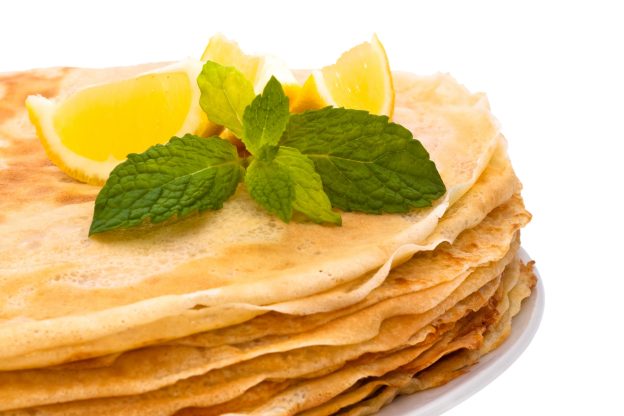Pancake Day or Shrove Tuesday always falls 47 days before Easter Sunday, preceding Ash Wednesday (which is the first day of Lent) and is celebrated by eating pancakes in the UK and some other countries. It is also known as Mardi Gras in some countries, a carnival day and the last day of eating well before fasting for Lent.
Where does the name “Shrove” come from – well it comes from the word “shrive”. “Shrive” in the MacmIllan dictionary is given the following definition:
“when a priest shrives someone, they listen to the person’s confession about what they have done wrong and offer forgiveness”
So actually it means “to absolve” somebody of something. This date is observed by lots of Christians including Anglicans, Lutherans, Methodists and Roman Catholics.
Many of us know people who fast for Lent, either for religious or dietary reasons and abstain from alcohol or certain rich foods during the period of Lent. Originally Pancake Day was a way of using up rich food such as eggs, milk and sugar before the 40 days of (fasting) Lent. For those of us who are not religious or willing to give up food and drink, Shrove Tuesday is just a day for cooking and eating pancakes and putting on a few extra calories.
A traditional English pancake is very different from an American pancake. It is a very thin flat cake made from a batter, fried gently in a frying pan and served with lemon juice or golden syrup and castor sugar. Other toppings have crept in over the years and everyone has their favourite. Pancakes go back to around the 1400s when the tradition of tossing them in the pan became popular. Many different pancake races take place in the UK on Shrove Tuesday, where people wear fancy dress race up the street tossing pancakes as they run and the first to the finishing line wins!
At Westminster School in London an annual “Pancake Grease” takes place. An official of Westminster Abbey leads a group of boys into the playground, where the school cook is tossing a very large pancake over a five metre high bar. The boys race to grab a piece of the pancake and the one with the largest piece receives a prize from the school Dean.
I prefer to cook and eat my pancakes without running around the street carrying a frying pan! So here’s a traditional English pancake recipe for you to try:
- 100 g plain flour
- good pinch of salt
- 1 egg
- 250 ml milk (or a mix of half milk and half water)
- lemon/castor sugar/golden syrup for serving
Mix the flour and salt. Make a hole in the flour mix and drop in the egg and a little milk. Mix in the flour stirring to keep the mixture smooth. Gradually add half the milk. Beat the mixture well and then stir in the remaining milk, mixing to a smooth batter.
Pour the batter into a jug. Heat a little fat or oil in a small frying pan (15-18 cms in diameter). Pour in enough batter to cover the bottom of the pan and quickly tilt to spread the liquid thinly over the bottom. Cook for several minutes until lightly brown and then toss to turn it over and cook until lightly brown on the other side. Serve rolled up with lemon juice and castor sugar.
Delicious!
Pat Pledger
24 February 2020

